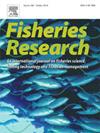遏制严重饥饿和普遍的粮食不安全:依靠世界捕鱼业是否足够和在生态上可持续?
IF 2.2
2区 农林科学
Q2 FISHERIES
引用次数: 0
摘要
粮食不安全仍然是一项重大的全球挑战,也是旨在消除饥饿、改善营养和促进可持续农业的可持续发展目标2 (SDG2)的重点。本研究考察了温室气体排放如何影响渔业部门对粮食不安全的影响。利用2000年至2020年间123个国家的面板数据,该分析采用了稳健的计量经济学方法,包括工具变量两阶段最小二乘法(IV-2SLS)、平滑工具变量分位数回归(SIVQR)和系统广义矩量法(GMM)。研究结果表明,渔业生产显著降低了不同大陆、不同收入水平和不同地理背景下的营养不良发生率。粮食安全、可得性、可及性、稳定性和利用的关键方面通过增加渔业生产得到加强,这可以从膳食能量充足性、蛋白质供应、热量摄入和获得安全饮用水得到改善中得到证明。然而,温室气体排放对鱼类生产及其缓解粮食不安全的能力产生负面影响,强调需要减少排放以最大限度地提高该部门的效益。在北美,确定了1.125的关键温室气体减排门槛,以抵消不利影响,突出了解决环境问题的紧迫性。政策建议强调采用可持续渔业管理做法,包括管制捕捞配额、保护生境和防止过度捕捞。投资清洁技术,如节能渔船和可再生能源整合,对于减少渔业部门的碳足迹至关重要。加强气候适应战略,如早期预警系统、渔业社区的多样化生计以及先进的研究,对抵御能力至关重要。此外,将渔业纳入更广泛的国家和区域粮食安全战略并促进国际合作,特别是在《巴黎协定》等框架下的合作,可以进一步促进可持续粮食生产。本文章由计算机程序翻译,如有差异,请以英文原文为准。
Curbing severe hunger and the prevalence of food insecurity: Is relying on the world fishing industry sufficient and ecologically sustainable?
Food insecurity remains a critical global challenge and a key focus of Sustainable Development Goal 2 (SDG2), which aims to eradicate hunger, enhance nutrition, and promote sustainable agriculture. This study examine how greenhouse gas (GHG) emissions affect fisheries sector’s impact on food insecurity. Using panel data from 123 countries spanning 2000–2020, the analysis employs robust econometric approaches, including the instrumental variable two-stage least squares (IV-2SLS), smoothed instrumental variables quantile regression (SIVQR), and system generalized method of moments (GMM). The findings reveal that fisheries production significantly reduces undernourishment prevalence across diverse continents, income levels, and geographical contexts. Key dimensions of food security, availability, accessibility, stability, and utilization are enhanced through increased fisheries production, as evidenced by improved dietary energy adequacy, protein supply, caloric intake, and access to safe drinking water. However, GHG emissions negatively influence fish production and its capacity to mitigate food insecurity, underscoring the need for emission reductions to maximize the sector's benefits. In North America, a critical GHG emission reduction threshold of 1.125 is identified to neutralize adverse impacts, highlighting the urgency of addressing environmental concerns. Policy recommendations emphasize the adoption of sustainable fisheries management practices, including regulated fishing quotas, habitat protection, and prevention of overfishing. Investments in clean technologies, such as energy-efficient fishing vessels and renewable energy integration, are essential for reducing the carbon footprint of the fisheries sector. Strengthening climate adaptation strategies, such as early warning systems, diversified livelihoods for fishing communities, and advanced research, is critical for resilience. Additionally, integrating fisheries into broader national and regional food security strategies and fostering international collaboration, particularly under frameworks like the Paris Agreement, can further enhance sustainable food production.
求助全文
通过发布文献求助,成功后即可免费获取论文全文。
去求助
来源期刊

Fisheries Research
农林科学-渔业
CiteScore
4.50
自引率
16.70%
发文量
294
审稿时长
15 weeks
期刊介绍:
This journal provides an international forum for the publication of papers in the areas of fisheries science, fishing technology, fisheries management and relevant socio-economics. The scope covers fisheries in salt, brackish and freshwater systems, and all aspects of associated ecology, environmental aspects of fisheries, and economics. Both theoretical and practical papers are acceptable, including laboratory and field experimental studies relevant to fisheries. Papers on the conservation of exploitable living resources are welcome. Review and Viewpoint articles are also published. As the specified areas inevitably impinge on and interrelate with each other, the approach of the journal is multidisciplinary, and authors are encouraged to emphasise the relevance of their own work to that of other disciplines. The journal is intended for fisheries scientists, biological oceanographers, gear technologists, economists, managers, administrators, policy makers and legislators.
 求助内容:
求助内容: 应助结果提醒方式:
应助结果提醒方式:


